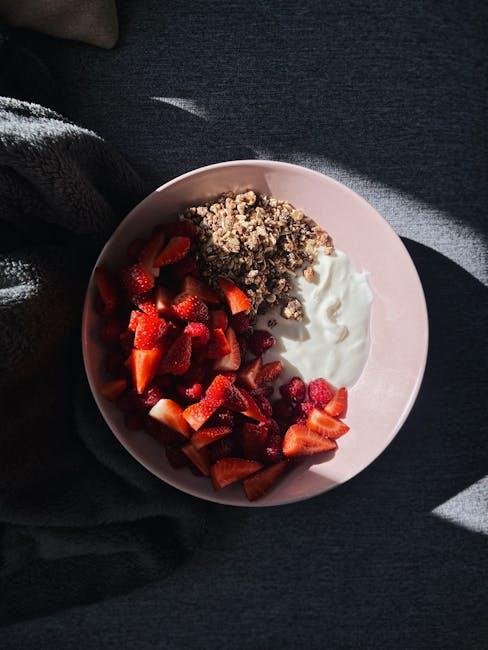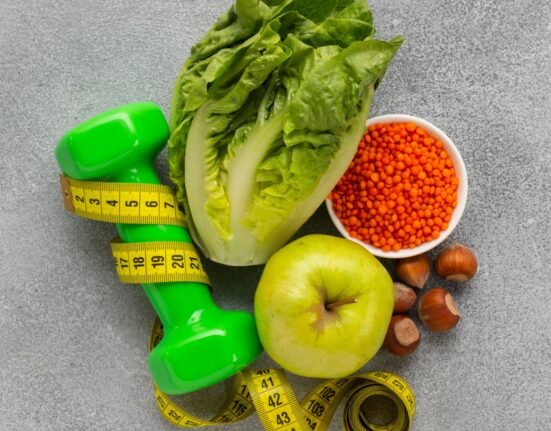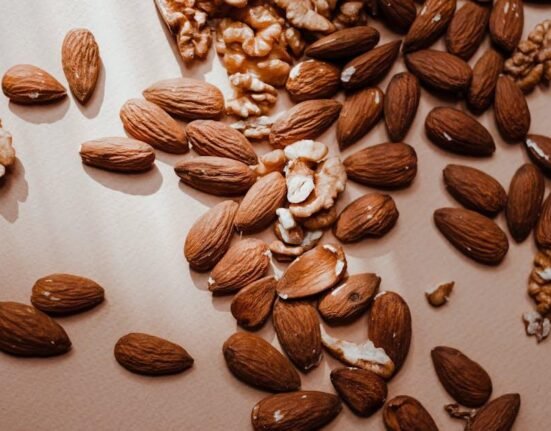Bloating — that uncomfortable, swollen sensation many of us experience after a heavy meal or stressful day — can feel like an unwelcome guest who overstays their welcome. While it’s often harmless, the pressure and discomfort it brings can disrupt our routines and put a damper on our well-being. Fortunately, nature offers a bounty of gentle remedies that have soothed digestive woes for centuries. From fragrant herbs to simple lifestyle tweaks, these natural solutions invite us to listen more closely to our bodies and find relief without relying solely on conventional medications. In this article, we explore a variety of time-honored, plant-based approaches that may help ease bloating, restore balance, and bring comfort from within.
Table of Contents
- Understanding the Causes Behind Bloating
- Herbal Teas that Soothe and Relieve Discomfort
- Incorporating Digestive Enzymes for Better Gut Health
- The Role of Probiotics in Reducing Bloating
- Simple Lifestyle Adjustments to Prevent Bloating Naturally
- Harnessing the Power of Hydration and Balanced Diets
- Q&A
- Insights and Conclusions

Understanding the Causes Behind Bloating
Bloating often arises from a combination of dietary habits, digestive health, and lifestyle factors. One of the primary culprits is the accumulation of gas in the digestive tract, typically caused by swallowed air or the fermentation of undigested food by intestinal bacteria. Foods high in fiber, carbonated drinks, and artificial sweeteners can also contribute to this uncomfortable feeling. Additionally, certain medical conditions such as irritable bowel syndrome (IBS), lactose intolerance, or small intestinal bacterial overgrowth (SIBO) can exacerbate bloating, highlighting the importance of identifying personal triggers.
Beyond diet, stress and lack of physical activity play significant roles in bloating. Stress can alter gut motility and increase the sensation of fullness, while sedentary behavior slows down digestion, allowing gas to build up more easily. Understanding the root causes often involves a combination of self-monitoring and professional consultation, but certain lifestyle adjustments can offer relief:
- Eating smaller, more frequent meals
- Reducing intake of gassy foods like beans, cabbage, and onions
- Staying hydrated to support digestion
- Engaging in regular physical activity
- Practicing mindful eating to reduce air swallowing
| Common Causes | How They Lead to Bloating |
|---|---|
| High-fiber foods | Fermentation in the colon produces excess gas |
| Carbonated drinks | Introduce excess air into the digestive system |
| Lactose intolerance | Undigested lactose ferments, causing gas and discomfort |
| Stress | Slows digestion and increases sensitivity to bloating |

Herbal Teas that Soothe and Relieve Discomfort
Delicate infusions of herbs have long been cherished for their ability to ease digestive woes. Chamomile tea, with its gentle anti-inflammatory properties, calms the stomach lining, reducing the sensation of bloating and discomfort. Meanwhile, peppermint tea promotes the relaxation of intestinal muscles, helping to alleviate gas buildup and encourage smooth digestion. These teas not only hydrate but also provide a comforting ritual to help your body unwind.
For those seeking a slightly more robust blend, ginger tea stands out as a powerhouse. Its natural compounds stimulate digestion and support the breakdown of food, preventing the accumulation of excess gas. Fennel tea acts as a natural carminative, working to expel trapped air from the digestive tract. Below is a quick reference table to guide your next cup selection:
| Herbal Tea | Main Benefit | Flavor Profile |
|---|---|---|
| Chamomile | Soothes inflammation | Floral, mild |
| Peppermint | Relaxes muscles | Minty, refreshing |
| Ginger | Boosts digestion | Spicy, warming |
| Fennel | Expels gas | Sweet, anise-like |

Incorporating Digestive Enzymes for Better Gut Health
To enhance your digestive process naturally, introducing digestive enzymes can play a transformative role in easing bloating and promoting overall gut well-being. These enzymes work by breaking down food molecules more efficiently, reducing the workload on your digestive system and minimizing the occurrence of gas and discomfort. Incorporating foods rich in natural enzymes like pineapple, papaya, and fermented products can enrich your digestive environment, making nutrient absorption smoother and your gut happier.
Benefits of Digestive Enzymes:
- Improved nutrient absorption: Enzymes help your body extract essential vitamins and minerals more effectively.
- Reduced inflammation: A better-digested meal leads to less irritation within the gut lining.
- Relief from gas and bloating: Helps break down difficult-to-digest foods like proteins, fats, and complex carbohydrates.
| Food Source | Key Enzymes | Digestive Role |
|---|---|---|
| Pineapple | Bromelain | Breaks down proteins to reduce bloating |
| Papaya | Papain | Supports fat and protein digestion |
| Fermented Foods | Lactic Acid Bacteria | Enhance gut flora and enzyme production |

The Role of Probiotics in Reducing Bloating
Probiotics are live microorganisms that, when consumed in adequate amounts, can provide numerous health benefits, especially for the digestive system. They work by balancing the gut microbiota, which is crucial for maintaining smooth digestive functions. An imbalance in gut flora often leads to excessive gas and bloating, but introducing probiotic-rich foods or supplements can restore harmony and ease uncomfortable symptoms. Common sources include yogurt, kefir, sauerkraut, and other fermented foods that naturally contain beneficial bacteria.
Incorporating probiotics into your daily routine can help in multiple ways:
- Enhance digestion: Probiotics assist in breaking down food more efficiently, reducing the chances of undigested food fermenting and causing gas.
- Reduce inflammation: Certain strains of probiotics can soothe the gut lining, thereby minimizing bloating linked to irritation.
- Improve bowel regularity: A balanced gut flora encourages healthier bowel movements, which can prevent the buildup of gas and discomfort.
| Probiotic Strain | Benefit for Bloating |
|---|---|
| Lactobacillus acidophilus | Enhances digestion and reduces gas production |
| Bifidobacterium infantis | Eases inflammation and abdominal discomfort |
| Streptococcus thermophilus | Supports lactose digestion, reducing bloating from dairy |

Simple Lifestyle Adjustments to Prevent Bloating Naturally
Making subtle shifts in your daily routine can dramatically reduce the discomfort of bloating. Start by slowing down your eating pace — chewing thoroughly helps digestion and prevents excess air from entering the stomach. Incorporating hydration habits such as drinking a glass of warm water first thing in the morning stimulates your digestive tract naturally. Additionally, embracing mindful breathing exercises can ease tension in the abdomen, allowing your digestive system to function smoothly. Avoiding carbonated drinks and artificial sweeteners also plays a crucial role in keeping gas build-up at bay.
Small dietary tweaks contribute significantly as well. Try integrating foods rich in natural enzymes like papaya or pineapple, which aid in breaking down food effortlessly. Regular physical activity, even simple walks after meals, encourages the movement of gas through your intestines. Below, an easy reference table highlights simple habits and their benefits to get you started:
| Habit | Benefit |
|---|---|
| Chew Slowly | Reduces swallowed air |
| Warm Water in Morning | Stimulates digestion |
| Walk After Meals | Promotes gas relief |
| Avoid Carbonation | Decreases bloating triggers |

Harnessing the Power of Hydration and Balanced Diets
Staying optimally hydrated is a simple yet incredibly effective strategy to combat bloating. Water acts as a natural cleanser, flushing out excess sodium and toxins that contribute to water retention and uncomfortable swelling. Incorporating herbal teas such as peppermint or ginger not only boosts hydration but also soothes the digestive system, easing gas and inflammation. Remember, sipping fluids consistently throughout the day is more beneficial than consuming large amounts at once, which can sometimes exacerbate bloating.
A balanced diet centered around fiber-rich foods improves digestion and promotes regular bowel movements, essential for reducing bloating. Foods like leafy greens, berries, and whole grains are excellent choices, as they maintain gut health and encourage the growth of good bacteria. Avoiding processed foods high in salt and sugar is equally important, as these can disrupt the delicate water balance in your body. Consider the following quick guide for natural dietary remedies:
| Food Type | Benefits | Example |
|---|---|---|
| Fiber-Rich | Enhances digestion and regularity | Oats, Chia seeds |
| Anti-Inflammatory | Soothes digestive tract | Turmeric, Ginger |
| Hydrating | Flushes excess salts | Cucumber, Watermelon |
Q&A
Q&A:
Q1: What exactly causes bloating?
A1: Bloating usually happens when your digestive system fills with excess gas or air, causing your stomach to feel swollen and uncomfortable. It can result from overeating, swallowing air, eating gas-producing foods, or underlying digestive issues.
Q2: Can natural remedies really help reduce bloating?
A2: Absolutely! Many natural remedies work by calming your digestive tract, aiding digestion, or reducing gas production—offering relief without the need for medication.
Q3: Which herbs are known to relieve bloating?
A3: Peppermint, ginger, and fennel are some star players. Peppermint relaxes the intestinal muscles, ginger boosts digestion and reduces inflammation, while fennel seeds help expel trapped gas.
Q4: How does drinking warm water or herbal teas help?
A4: Warm water stimulates digestion and can prevent constipation, a common bloating culprit. Herbal teas like chamomile or dandelion not only soothe your stomach but also have mild diuretic effects to reduce water retention.
Q5: Are there any dietary tips to prevent bloating naturally?
A5: Yes! Chewing food thoroughly, eating smaller meals, avoiding carbonated drinks, and reducing intake of salt and high-fat foods can minimize gas buildup. Including probiotic-rich foods like yogurt may improve gut flora and digestion.
Q6: Can physical activity ease bloating?
A6: Definitely. Gentle movements like walking, yoga, or stretching can help your body pass gas and reduce the feeling of fullness, promoting smoother digestion.
Q7: When should someone see a doctor about bloating?
A7: If bloating is frequent, severe, or accompanied by symptoms like weight loss, severe pain, or blood in stool, it’s important to seek medical advice to rule out underlying conditions.
Q8: Is it safe to try all these remedies together?
A8: For most people, yes—but it’s wise to introduce one remedy at a time to see how your body reacts. If in doubt, especially for pregnant women or those with health conditions, consult a healthcare professional.
Natural remedies offer a gentle way to ease bloating and support digestive health, making discomfort a little less unwelcome in your day.
Insights and Conclusions
As we navigate the often uncomfortable waves of bloating, turning to nature’s own remedies offers a gentle, accessible path to relief. From soothing herbal teas to mindful eating habits, these natural approaches invite us to listen more closely to our bodies and restore balance without harsh interventions. While the journey to comfort may differ for each of us, embracing these time-honored practices can be a first step toward lasting ease and a happier, more harmonious digestive rhythm. Remember, nature’s solutions are as varied as the individuals who seek them — inviting exploration, patience, and a touch of curiosity along the way.















Leave feedback about this